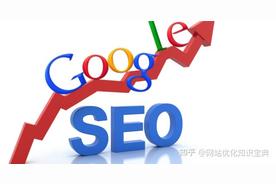Search Engine Optimization (SEO) is a crucial aspect of digital marketing that helps websites rank higher in search engine results pages (SERPs). The goal of SEO is to improve the visibility and organic traffic of a website by optimizing various on-page and off-page factors. In this article, we will discuss the key factors that affect SEO ranking and provide actionable tips for Website Optimization.
1、Keyword Research and Usage
Keywords are the foundation of any SEO Strategy. They are the words and phrases that users enter into search engines to find relevant information. Conducting thorough keyword research helps identify the most relevant and valuable keywords for your website. Once identified, these keywords should be used strategically in your content, meta tags, URLs, and other on-page Elements.
2、Quality Content
Content is king when it comes to SEO. High-quality, engaging, and informative content can help improve your website's ranking in search results. Ensure that your content is unique, well-written, and provides value to your target audience. Additionally, use appropriate headings, subheadings, and formatting to make your content more readable and easy to scan.
3、On-Page SEO Factors
On-page SEO refers to the optimization of various elements within your website that can impact its ranking. Some important on-page factors include:
a. Meta Tags: Optimize your title tags and meta descriptions with relevant keywords to provide search engines and users with a clear understanding of your page's content.
b. Headers and Subheaders: Use H1, H2, and H3 tags to organize your content and make it easier for search engines to understand the structure of your page.
c. URL Structure: Create clean, descriptive, and keyword-rich URLs to improve your website's visibility in search results.
d. Image Optimization: Compress images, use descriptive file names, and add alt text to improve the accessibility and relevance of your visual content.
e. Mobile-Friendly Design: Ensure that your website is responsive and optimized for mobile devices to provide a seamless user experience across all platforms.

4、Off-Page SEO Factors
Off-page SEO refers to the optimization of external factors that can impact your website's ranking. Some important off-page factors include:
a. Backlinks: Build high-quality backlinks from reputable sources to demonstrate the authority and trustworthiness of your website.
b. Social Media Presence: Maintain an active presence on social media platforms to engage with your audience and promote your content.
c. Brand Mentions: Monitor and manage online mentions of your brand to maintain a positive reputation and improve your online visibility.
5、Technical SEO Factors
Technical SEO involves optimizing the technical aspects of your website to ensure that search engines can crawl, index, and rank your content effectively. Some important technical SEO factors include:
a. Site Speed: Optimize your website's loading speed by compressing files, minimizing code, and using a content delivery network (CDN).
b. Site Structure: Create a logical and user-friendly site structure with clear navigation and internal linking to improve user experience and facilitate search engine crawling.
c. HTTPS: Secure your website with an SSL certificate to protect user data and improve your website's trustworthiness.
d. Schema Markup: Use schema markup to provide additional context and structure to your content, making it easier for search engines to understand and display your information in SERPs.
6、User Experience (UX)
Providing a positive user experience is essential for improving your website's ranking in search results. Some key UX factors include:
a. Page Load Time: Ensure that your website loads quickly to avoid user frustration and reduce bounce rates.
b. Accessibility: Make your website accessible to all users, including those with disabilities, by following best practices for web accessibility.
c. Interactive Elements: Use interactive elements such as forms, quizzes, and surveys to engage with your audience and encourage user-generated content.
7、Local SEO
If you have a physical business location, local SEO can help improve your visibility in local search results. Some important local SEO factors include:
a. Google My Business: Create and optimize a Google My Business listing to provide accurate information about your business, including its address, phone number, and hours of operation.
b. Local Citations: Build consistent and accurate citations across various online directories to improve your business's local visibility.
c. Localized Content: Create locally-focused content that targets specific geographic areas and addresses the needs of your local audience.
8、Continuous Monitoring and Analysis
SEO is an ongoing process that requires continuous monitoring, analysis, and adjustment. Regularly track your website's performance using tools like Google Analytics and Search Console to identify areas for improvement and adjust your SEO strategy accordingly.
In conclusion, SEO ranking is influenced by a wide range of factors, including keyword research, content quality, on-page and off-page optimization, technical aspects, user experience, local SEO, and continuous monitoring and analysis. By addressing these factors and implementing effective SEO strategies, you can improve your website's visibility, attract more organic traffic, and ultimately achieve your digital marketing goals.
评论列表 (0条)